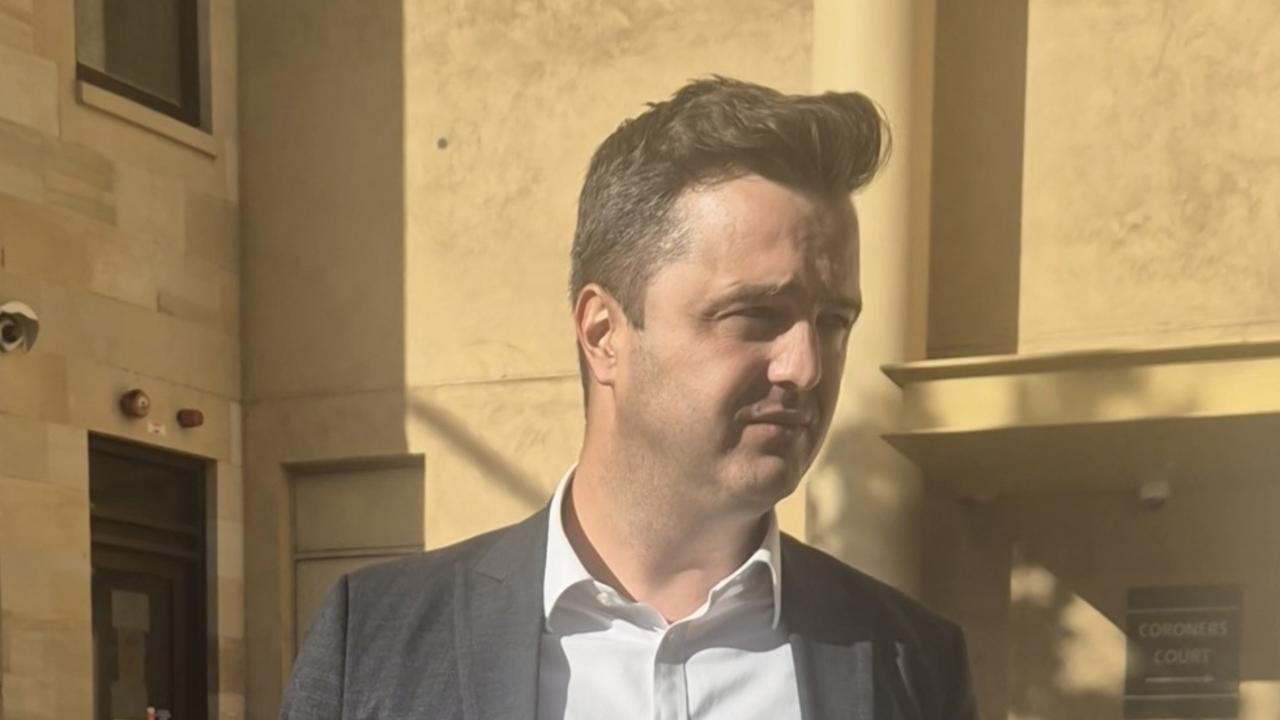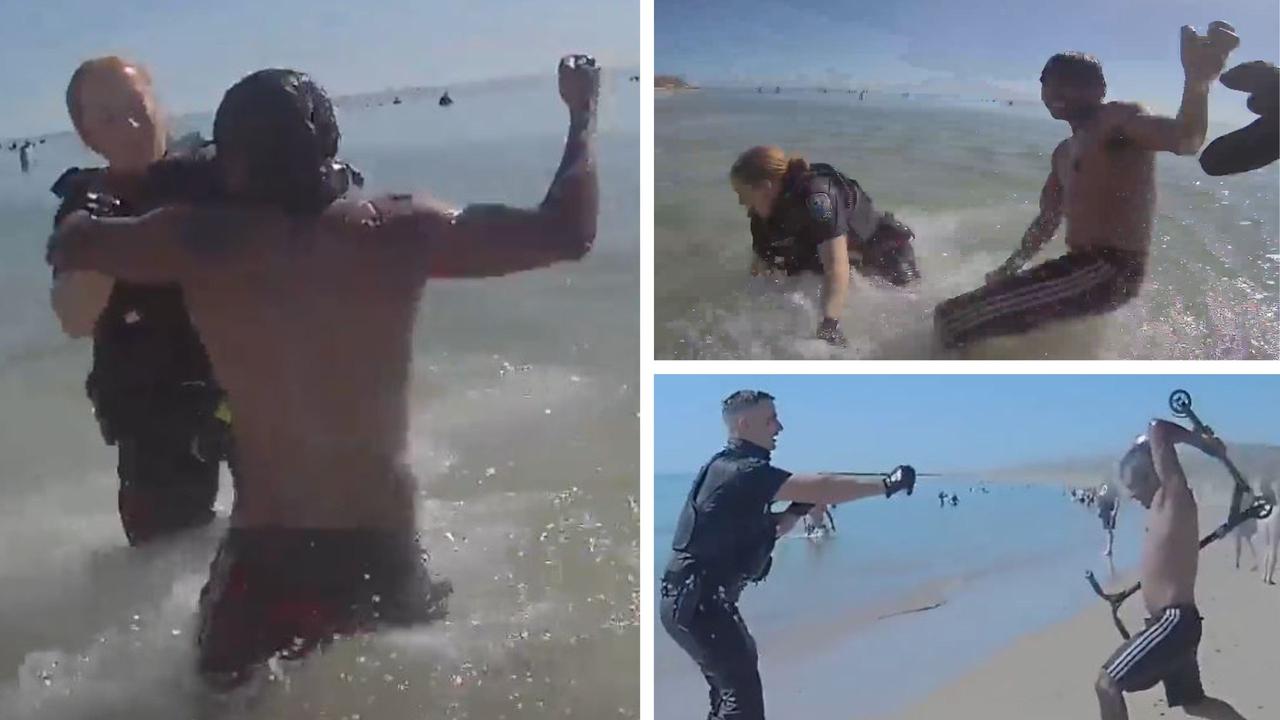Southern killers: 17 people jailed for murder or manslaughter in SA in 2023
Some of SA’s most baffling, long-running murder or manslaughter cases have been resolved this year – with 17 people sentenced to the heaviest penalties the law allows.
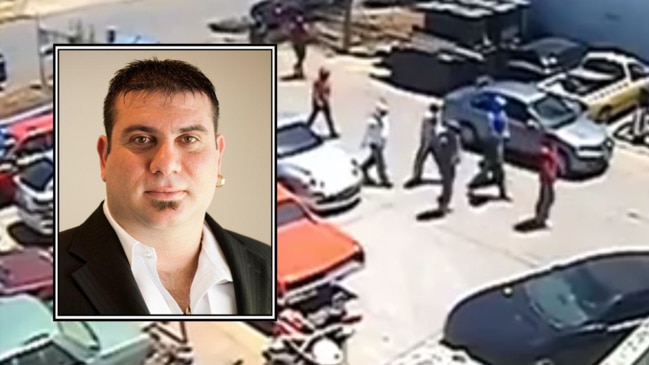
Police & Courts
Don't miss out on the headlines from Police & Courts. Followed categories will be added to My News.
Some of South Australia’s most baffling, long-running murder and manslaughter cases have been resolved this year before the courts – with 17 people sentenced to the heaviest penalties the law allows.
It’s no wonder the myth that SA is the nation’s “murder capital” persists, despite all evidence to the contrary.
Arguably, it’s not the number of southern killers that feeds the legend but, rather, their variety – the macabre, if not downright odd, nature of their crimes.
From domestic terrorists to “keyboard warriors”, road-raging martial artists to drunken mates, and from victims both buried alive and still yet to be found, these are the SA killers of 2023.
THE GANG WAR MURDERERS
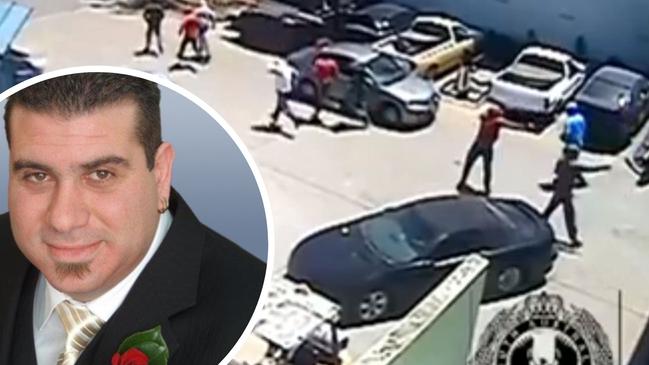
The biggest murder trial of 2023 was also the biggest criminal proceeding SA has seen since the days of the “mega trials” in the early 2000s.
Like those cases – the “bodies in the barrels” serial killings, assassin Jean Eric Gassy, murderous lovers Michelle Burgess and Kevin Matthews – this trial was full of twists.
Husain Alzuain, Mohamed Alzuain, Musa Ali Alzuain, Daniel Mark Jalleh, Ross William Montgomery, Kyle Lloyd Pryde, Nicholas Sianis and Seywan Moradi stood trial for the 2012 murder of Jason De Ieso.
Mr De Ieso, a panelbeater, was killed in a shotgun ambush by eight men who, prosecutors alleged, mistook him for one of their rivals.
The crime occurred amid one of the bloodiest stretches of the gang war between the Hells Angels and Finks bikie gangs, and Mr De Ieso was an innocent man caught in the crossfire.
Despite tireless work, SA Police did not make any arrests until August 2019.
The group’s Supreme Court trial began, after much legal wrangling, on May 10, 2023 – 10 and a half years after Mr De Ieso’s murder.
The case spanned dozens of witnesses and more than 6200 pages of transcript, after which jurors deliberated for six days before returning their verdicts.
They found the Alzuains, Jalleh, Montgomery, Pryde and Sianis guilty of murder but could not reach a verdict on Mr Moradi.
Mr Moradi pleaded not guilty to the single charge of murder and has always maintained his innocence.
He will face court again on a separate date to the other men, who have received automatic life sentences for their crime and filed appeals against the guilty verdicts.
DEATH FOR A BAD REVIEW
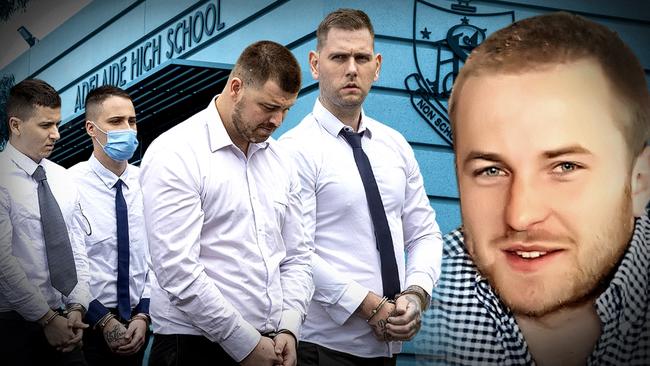
The De Ieso case was not the only allegation of “group murder” considered by the Supreme Court in 2023 – nor was it the only one linked to an outlaw gang.
Though Jeremy Dale Sandell, Kain Mazomenos, Thomas Nichols and Thomas Pinnington were tried in 2022, Justice Adam Kimber’s verdict was not handed down until May this year.
The quartet were accused of ambushing and murdering Victor Codea in the car park of Adelaide High School for the most petty of reasons – an online feud.
Each of the men pleaded not guilty to murder, while prosecutors declined to accept Sandell’s guilty plea to the lesser charge of manslaughter.
Sandell, a drug dealer, came to believe Mr Codea – a rival in the scene – was disparaging both him and his products through internet posts.
He also believed Mr Codea was making threats toward Mazomenos – a face-tattooed rising star in the Finks gang, son of infamously assassinated outlaw Shane Bowden.
Mazomenos was furious, and his anger was shared by Nichols and Pinnington – each of whom had their own reasons for courting bikie allegiances.
Justice Kimber, who heard the trial without a jury, found all of this to be proven beyond reasonable doubt and the quartet to be without remorse.
However, he did not conclude that their punching and kicking attack upon a defenceless Mr Codea carried murderous intent, instead ruling their crime to be manslaughter.
The verdict visibly upset Mr Codea’s heartbroken parents and, while it spared the quartet minimum 20-year sentences, their punishments remained severe.
Sandell and Mazomenos were jailed for 15 years and 13 years respectively, while Nichols and Pinnington received 11-year terms.
A MURDERER’S END
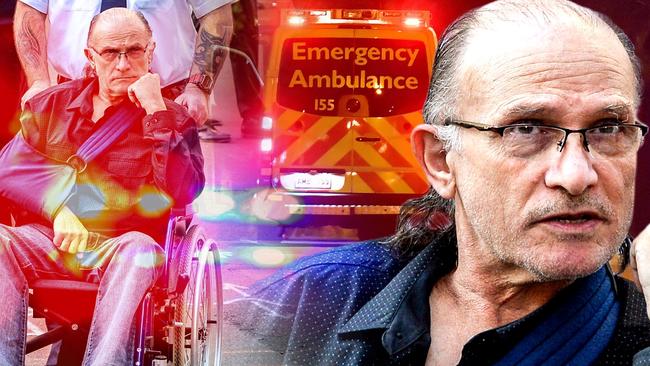
Like the Codea case, the saga of convicted murderer and NCA bomber Domenic Perre moved through court in 2022, but did not truly resolve until 2023.
Unlike that matter, Perre’s story concluded not through the judicial process but through the one arbiter with whom no one can barter – time.
In the early hours of May 9, 2023, The Advertiser revealed Perre – who murdered Detective Sergeant Geoffrey Bowen and attempted to murder lawyer Peter Wallis – had died.
Aged 66, Perre had been transferred to the RAH from the infirmary at Yatala prison on April 17 suffering a range of serious medical issues.
He died just after 11pm on May 8 – meaning he served just 213 days of his 37-year non-parole period.
His passing was a tragedy for the Perre family – who, like the man himself, maintained his innocence – and came as a shock to the Bowen and Wallis families.
Det Sgt Bowen’s widow, Jane Bowen-Sutton, said it best.
“I guess my first thought was that it is over, the end of the story,’’ she said.
“But I have cried all morning because this does not diminish the loss and the pain that one person created by murdering Geoff and also for Peter’s family.
“I don’t wish anyone dead, but it is now something I can tell my grandchildren, it is the end of the story … Perre has died a convicted murderer, he murdered Geoff.’’
THE CRUELLEST STALKER
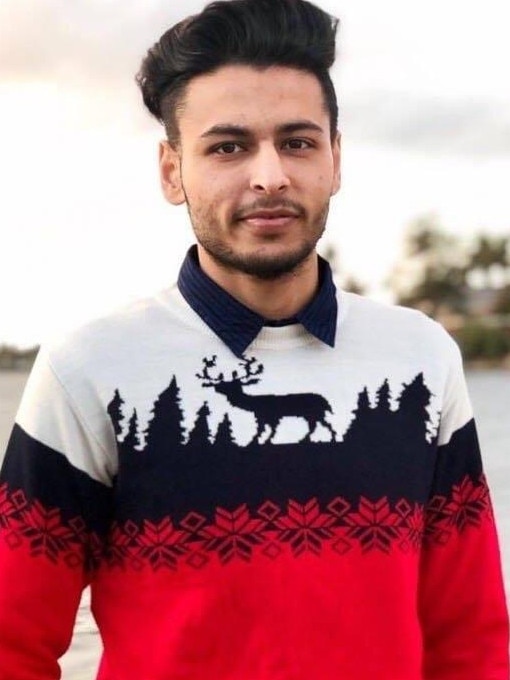
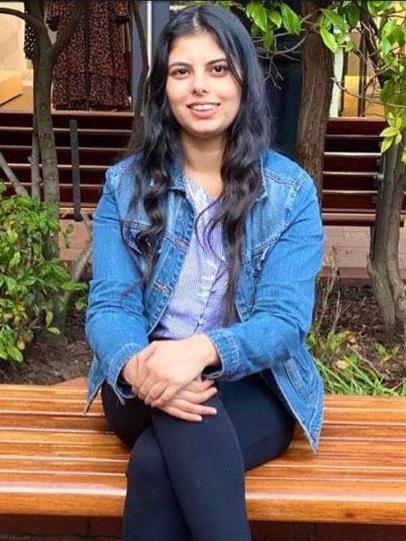
No victim, in any of 2023’s murder or manslaughter cases, deserved their death – nor have any of the countless South Australians slain during the state’s history.
Even so, the death of Jasmeen Kaur deserves a special degree of empathy, for few are murdered as cruelly and horrifically as was the beloved nursing student.
Ms Kaur was the unrequited obsession of her murderer, Tarikjot Singh, whose unwanted advances and marriage proposals she had rejected hundreds of times.
She even provided a statement to SA Police in January 2021, saying Singh – whom she had dated for a brief period – was overposessive, controlling and threatening.
Undeterred, Singh stalked Ms Kaur before kidnapping her in March 2021, restraining her with cable ties, burying her alive in the Flinders Ranges and staging the crime as suicide.
Prosecutor Carmen Matteo SC’s condemnation of Singh – who pleaded guilty to murder – ranks among the most harrowing submissions made in the Supreme Court.
She said the “nature and level of violence” involved in the way Ms Kaur was murdered “involved an uncommon level of cruelty”.
“She was actively breathing in and swallowing soil while she was alive … that was the manner in which she died,” she told Justice Adam Kimber.
“She had to have been aware of the hopelessness of her situation (and) consciously suffering what can only be described as the absolute terror (of) dying in that way.”
Singh was jailed for life with a non-parole period of 22 years and 10 months, leaving Ms Kaur’s grieving family – like those of all murder victims – to suffer their own sentence.
SUDDEN CONFESSIONS
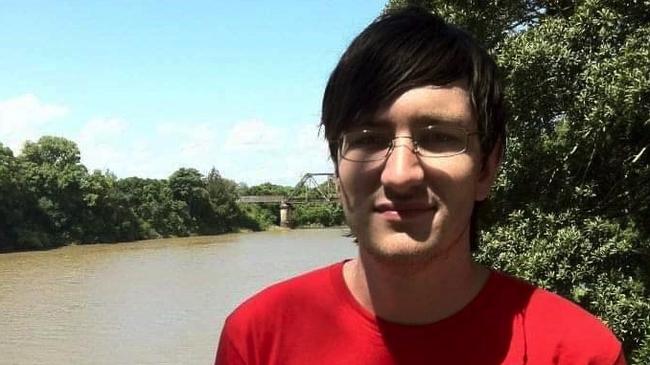
The smallest of mercies, for the Kaur family, is that Jasmeen’s body was recovered – for the loved ones of Michael Purse, such closure seems the dimmest of possibilities.
On February 9, 2023 – the fourth anniversary of the day Mr Purse was last seen alive – two men charged over his disappearance shocked the state.
Edwin James Hinrichsen and David Graham Young, who had long denied any involvement, pleaded guilty to manslaughter just as their trial was about to start.
Details underpinning their confessions, the court heard, were contained in a secret document that the duo’s counsel had to agree to destroy after reading.
Its contents quickly became obvious, however, when SA Police resumed their search for Mr Purse’s body and the trial of a third man, Mark-Bry Andrew Leedham, was postponed.
Mr Leedham has pleaded not guilty to murder and maintains his innocence.
At time of publication, Mr Purse’s remains still have yet to be located – a fact that has caused his mother, Donna Ipers, further anguish.
Her grief intensified when the Supreme Court heard Mr Purse had been ambushed, bound with duct tape, stabbed, choked with a phone cord and repeatedly jumped on.
Prosecutors conceded the motives of the duo were unknown but the killing appeared to be drug-fuelled.
“I would like to be one of those people who can forgive what they’ve done – not for them but for myself – but I can’t even think about it without Michael’s remains being found,” she said.
“They did this (pleaded guilty) for themselves and not for me and my family.”
In November, Hinrichsen and Young were each sentenced to more than 11 years’ jail.
CHOOSING MURDER
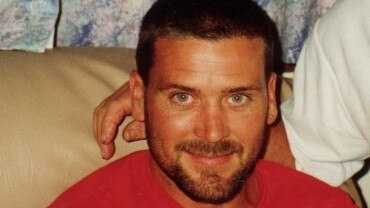
Drugs also played a role in the murder of Nathan Russell – a crime for which his killer, Dylan John Kovarskis, was sentenced in 2023 after pleading guilty the year before.
The men knew each other through SA’s methylamphetamine trade, but that illegal enterprise was not Kovarskis’ motivation.
In January 2021, he received a call that he believed was threatening his mother’s life, and further came to believe someone at Mr Russell’s CBD address was responsible.
Clad in a balaclava and Finks Motorcycle Club supporter clothing, armed with a wooden pole and a knife, Kovarskis stormed the Sturt St property in the early hours of the morning.
Nine seconds after entering, he stabbed Mr Russell twice – then both he and the house’s other occupants left, leaving Mr Russell alone to die.
The house’s other occupants were not charged with any offences.
In her victim impact statement, Mr Russell’s sister Belinda said Kovarskis deserved no mercy for a crime that was without mitigation.
“Your choice was to murder Nathan, you went to his home and attacked him … this was your choice and anticipated outcome, you chose murder.”
In sentencing, Justice Anne Bampton disagreed, saying Kovarskis was deeply remorseful and acting out of a genuine, though unjustified, belief his mother was at risk of harm.
“You were grossly intoxicated and your thoughts were hampered … however, you were still able to understand the nature of your actions and their wrongfulness,” she said.
She jailed Kovarskis for life with a 20-year non-parole period.
FRIENDSHIP FRACTURED
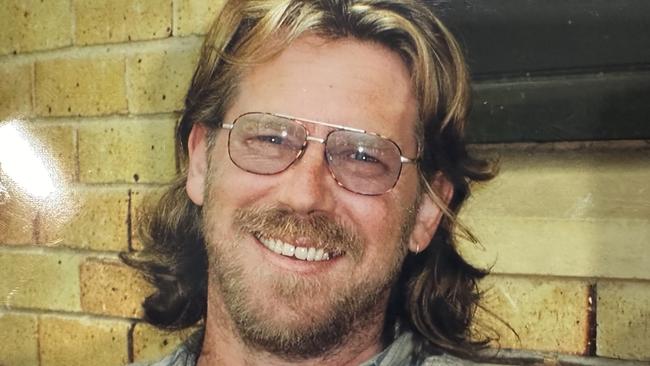
Like Kovarskis, Adam Troy Bennett knew his victim – Peter Hillier was his travelling companion and, at the time of his death, future business partner.
During Bennett’s murder trial, the Supreme Court heard the duo had met at a fire evacuation centre in rural New South Wales in December 2019.
Mr Hillier subsequently sold his home and the pair began travelling together – by May 2022, they were discussing buying Dusty’s Art Gallery at Poochera, on the Eyre Peninsula.
Mr Bennett, the court heard, arranged with the owner to buy a block of land behind the gallery for $25,000 and the gallery itself for a further $55,000.
Soon after, prosecutors alleged, Bennett bashed Mr Hillier to death “in a drunken rage”, then told a triple-0 operator the “spectacular lie” he had “jumped out” of a car and “run himself over”.
Their case was built on the testimony of gallery owner Ronald Miller.
He would, they told the court, say Bennett had “pressed or shoved” a piece of rock into Mr Hillier’s face and then “punched him hard to the head, and repeatedly”.
Mr Miller’s sworn evidence, however, did not match their allegations and the trial was called off after Bennett repeated his standing offer to plead guilty to manslaughter.
He had consistently maintained his not guilty plea to the charge of murder.
Prosecutors accepted the offer – a decision Justice Sandi McDonald lauded as “very sensible” given “everything that has transpired in this matter”.
His counsel also said Bennett wanted to extend an apology to Mr Hillier’s family and would do so at sentencing submissions.
ROAD RAGE BRAWLER
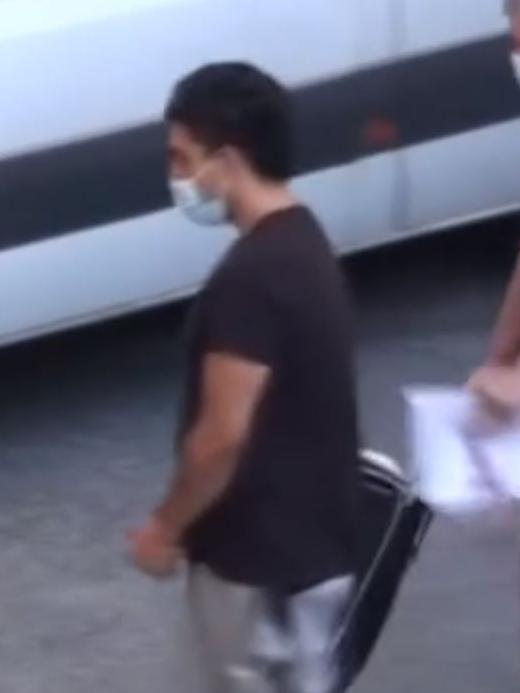
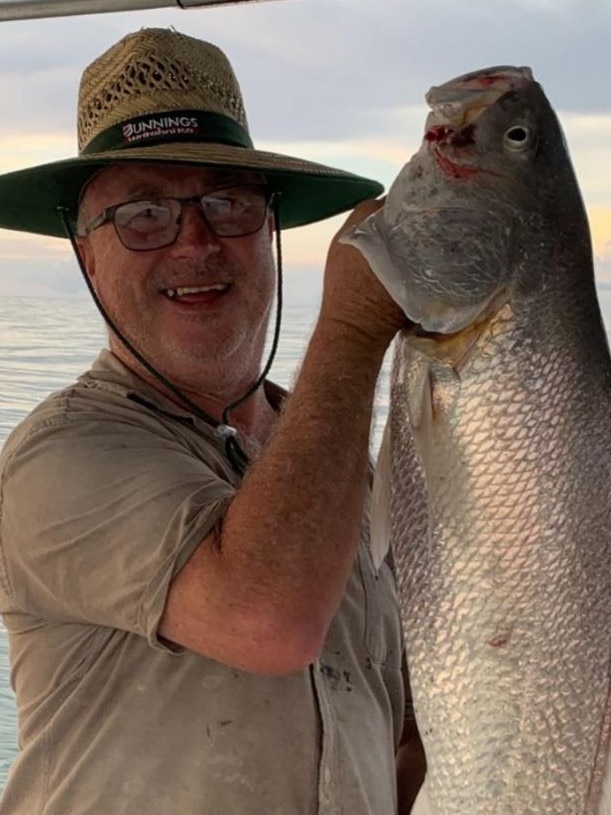
Francois Joseph Ghassibe and Brian Max Richardson were total strangers to one another – but West Terrace traffic, and the violence that followed, has linked them forever.
Ghassibe stood trial in the Supreme Court this year, having denied accusations he murdered Mr Richardson – a man 40 years his senior – on April 1, 2022.
Prosecutors alleged Mr Richardson became involved in a traffic dispute with a taxi driver, whose passenger was Ghassibe, a trained martial artist.
The younger man, they alleged, removed his shirt, repeatedly punched Mr Richardson and then kicked him in the chin, causing his head to impact fatally on the ground.
Their account was supported by Mr Richardson’s wife, who told the court her husband “did not want to fight”, but that claim was disputed by the taxi driver and Ghassibe himself.
The driver insisted Mr Richardson had started the fight while Ghassibe pleaded guilty to manslaughter, saying he “went too far” trying to defend himself and the driver.
Justice David Peek, who heard the trial without a jury, agreed with Ghassibe and found him not guilty of murder, but guilty of manslaughter.
He said CCTV of the incident showed Mr Richardson had “seriously assaulted” the taxi driver before Ghassibe “attempted to intervene peacefully”, and the incident escalated.
Ghassibe apologised to the Richardson family in court, saying he “cannot possibly express how deeply sorry I am” before starting his six-year prison term.
Because it was backdated to the day of his arrest, Ghassibe will be eligible to seek release on parole from October 12, 2026.




